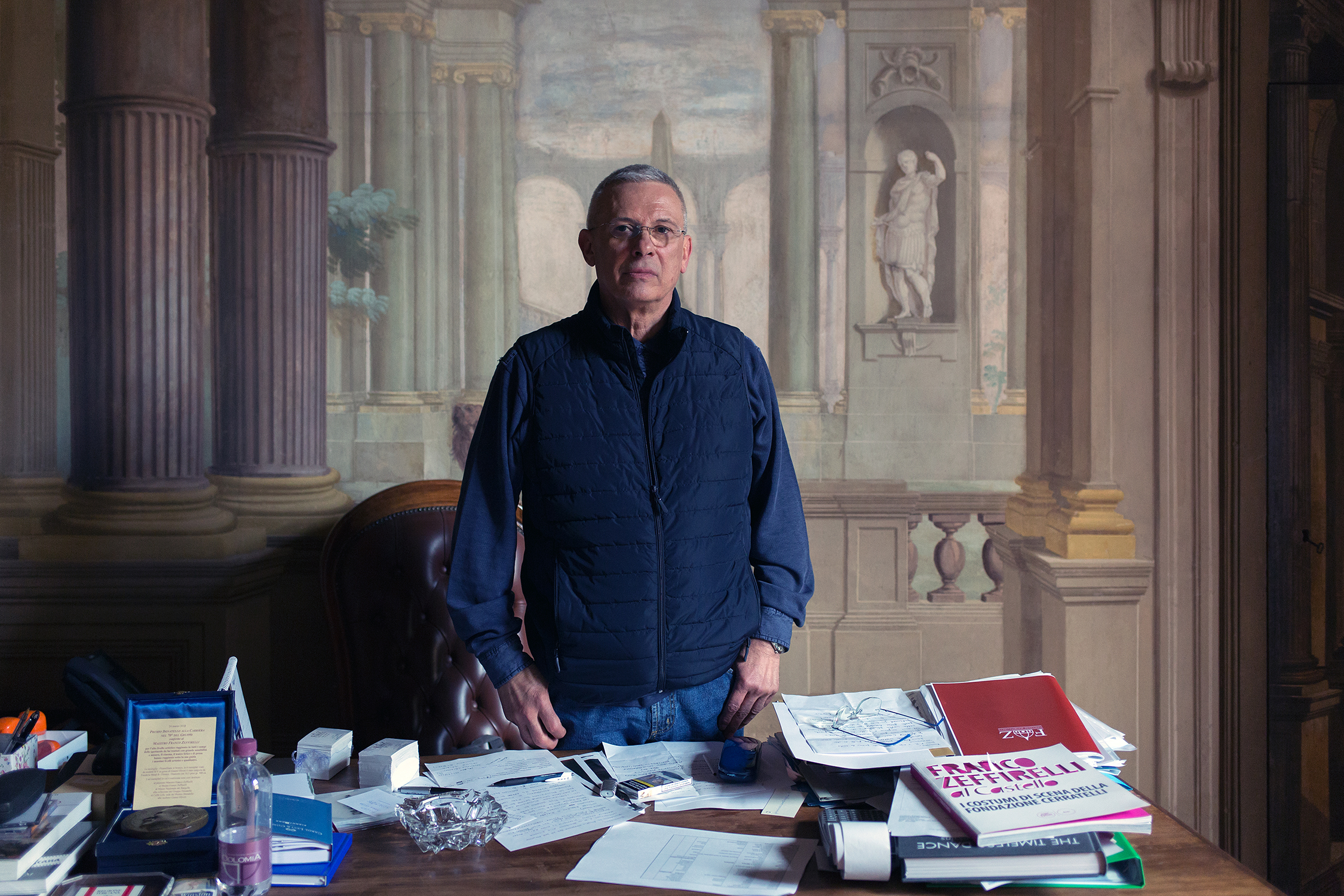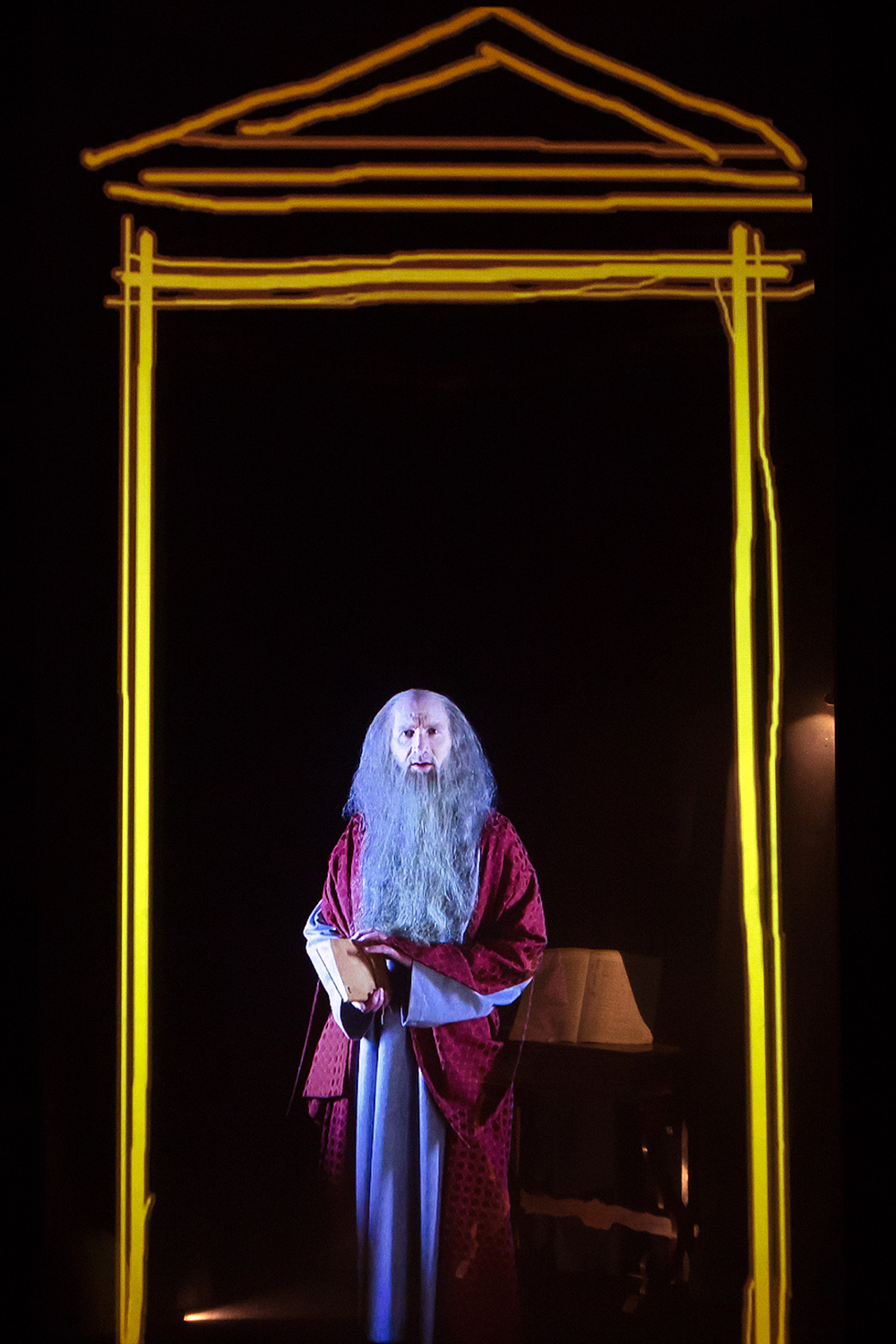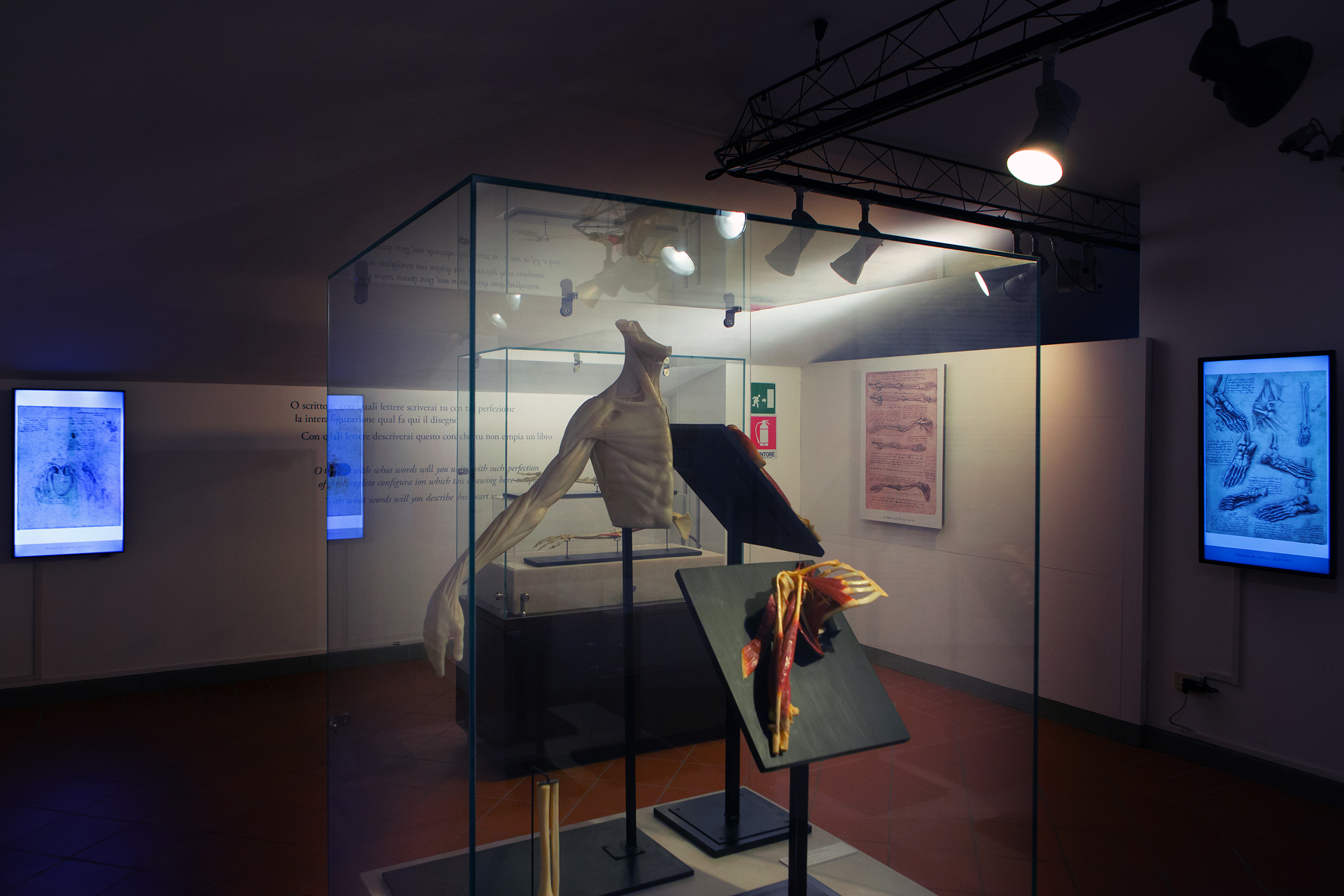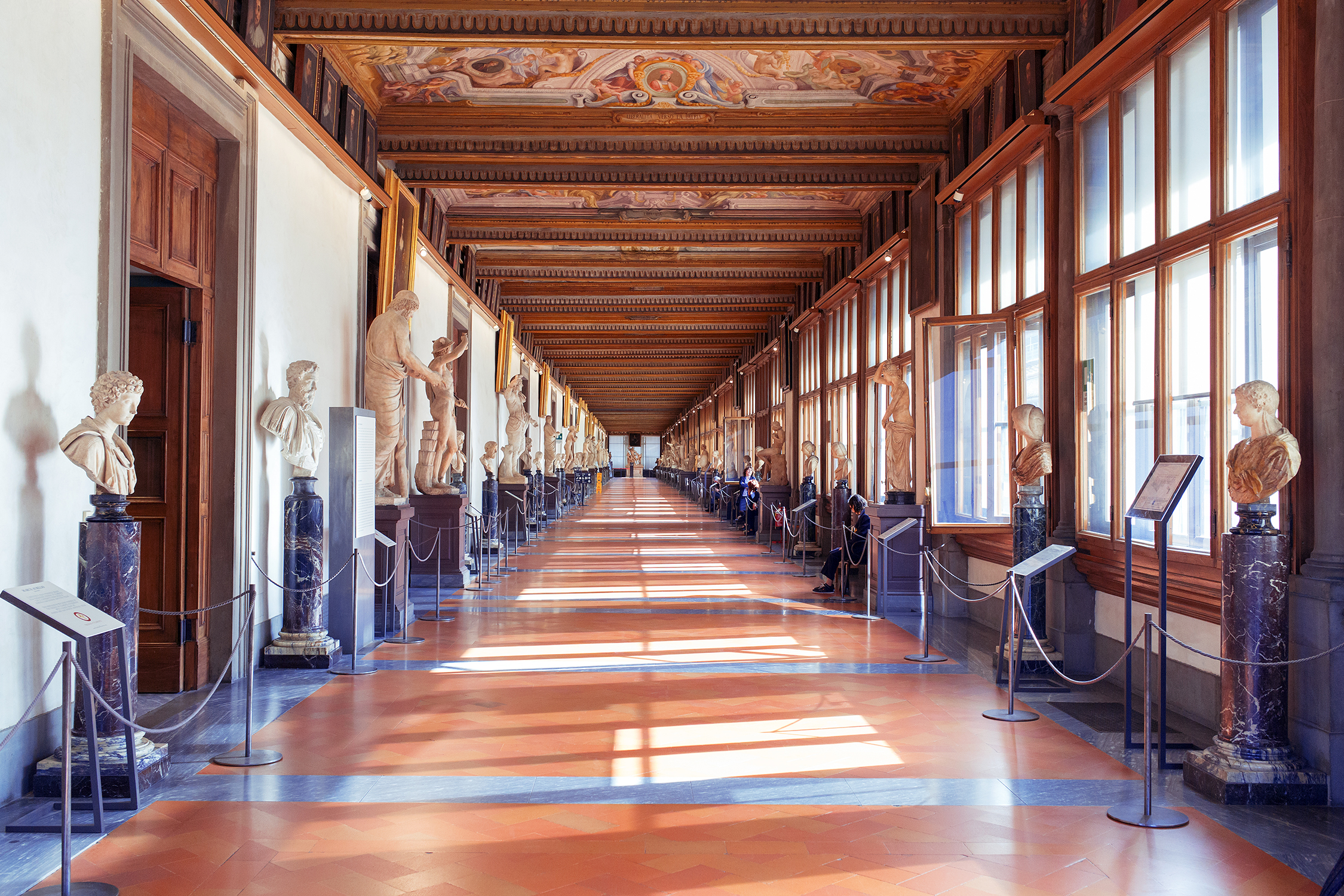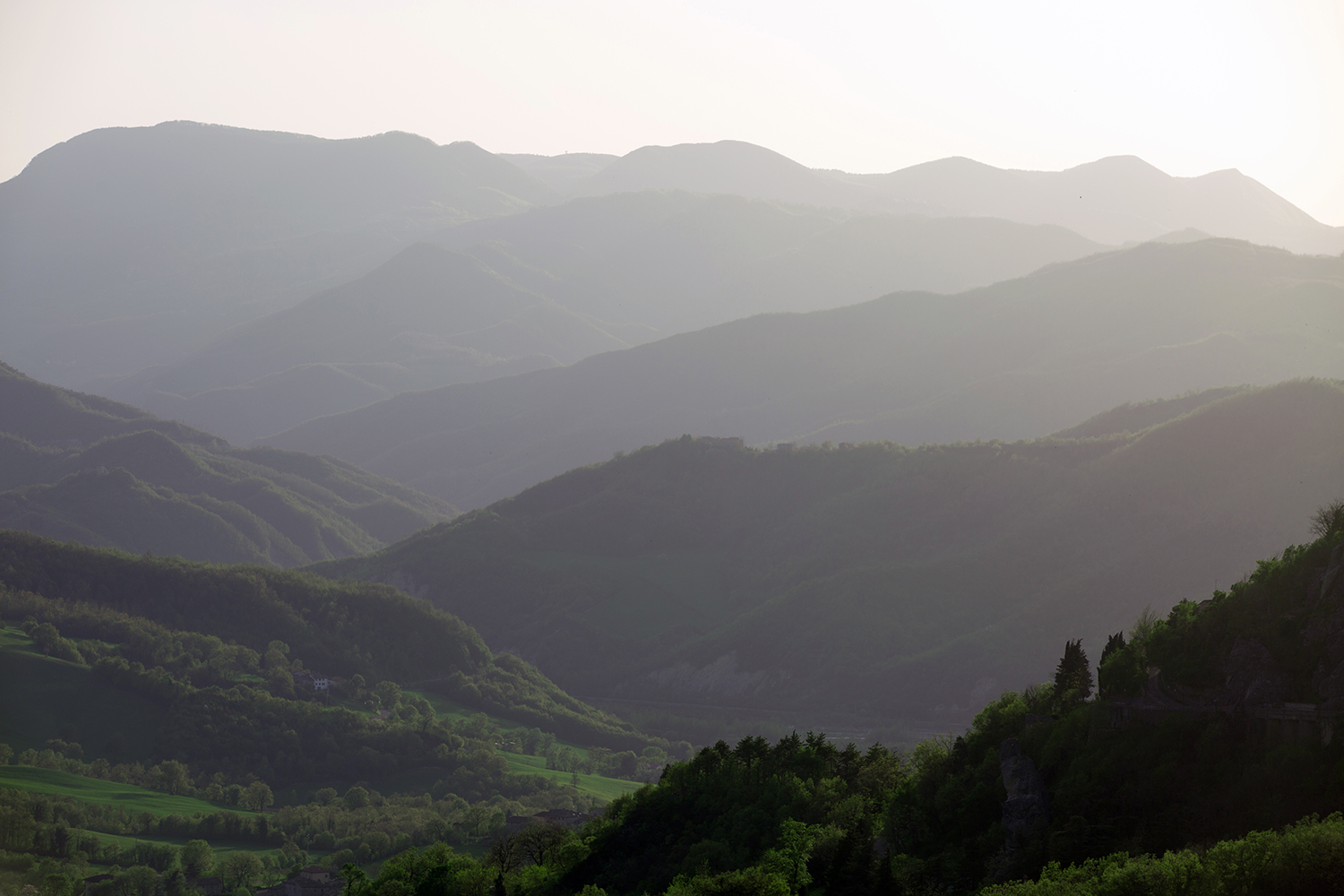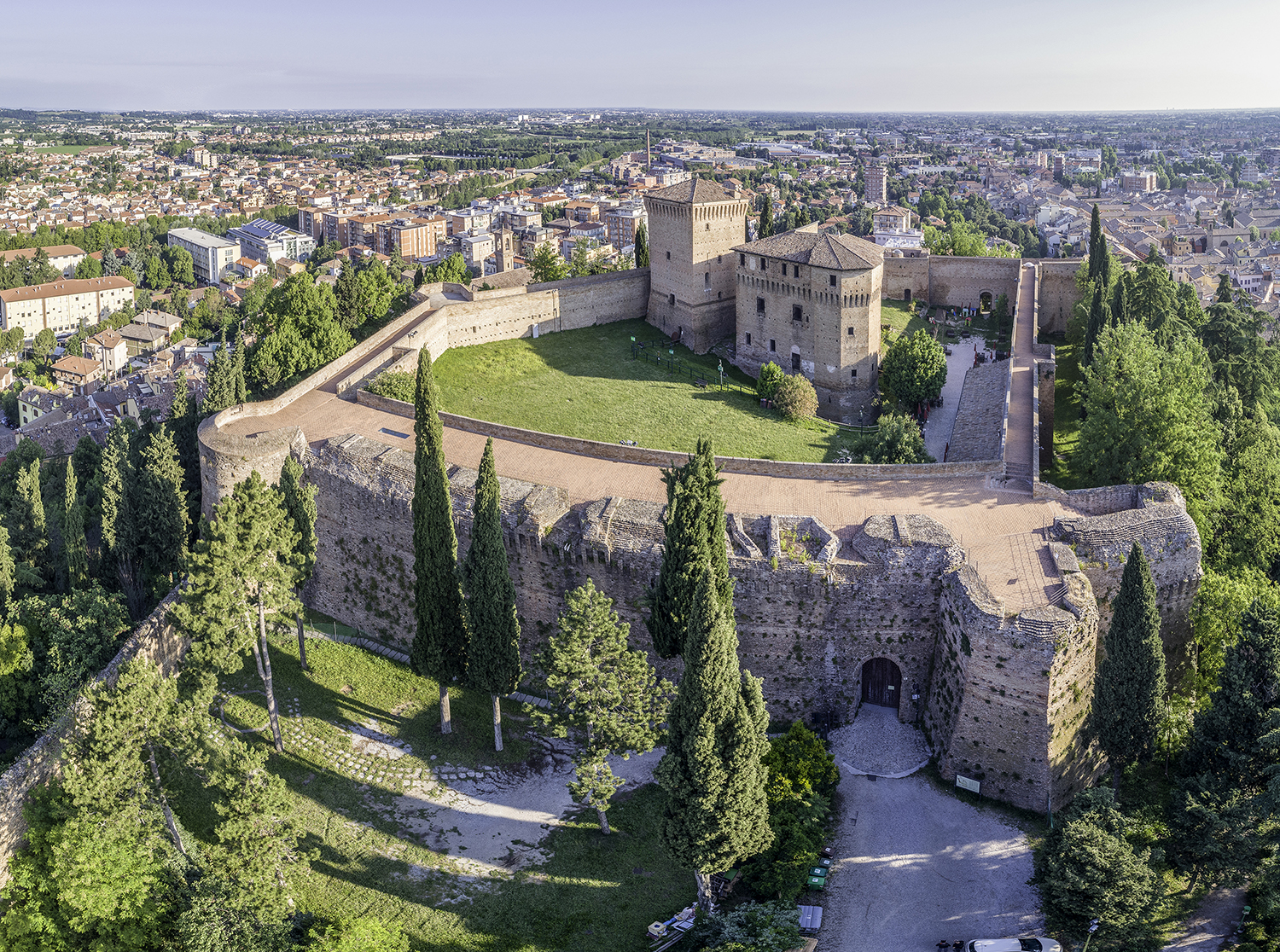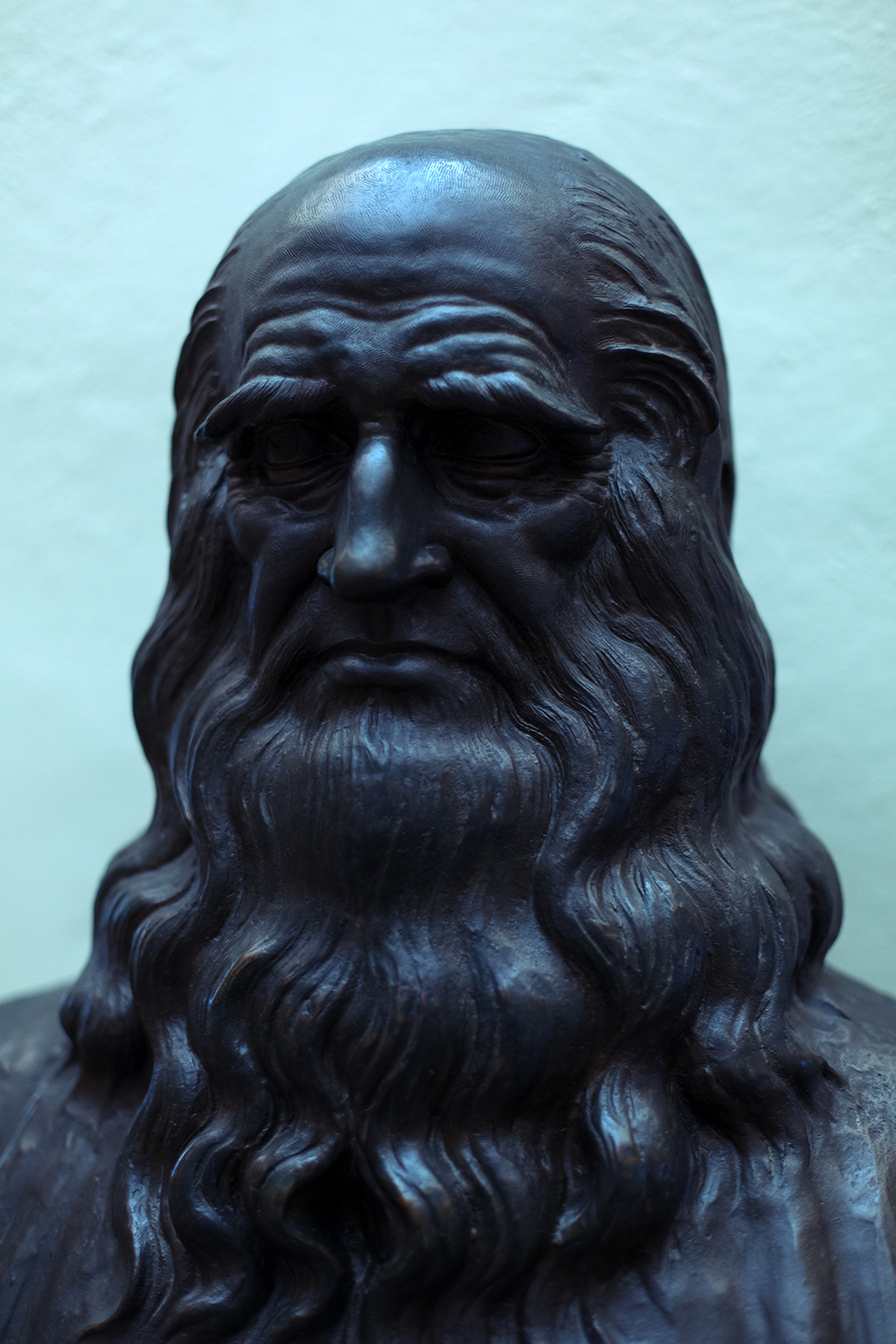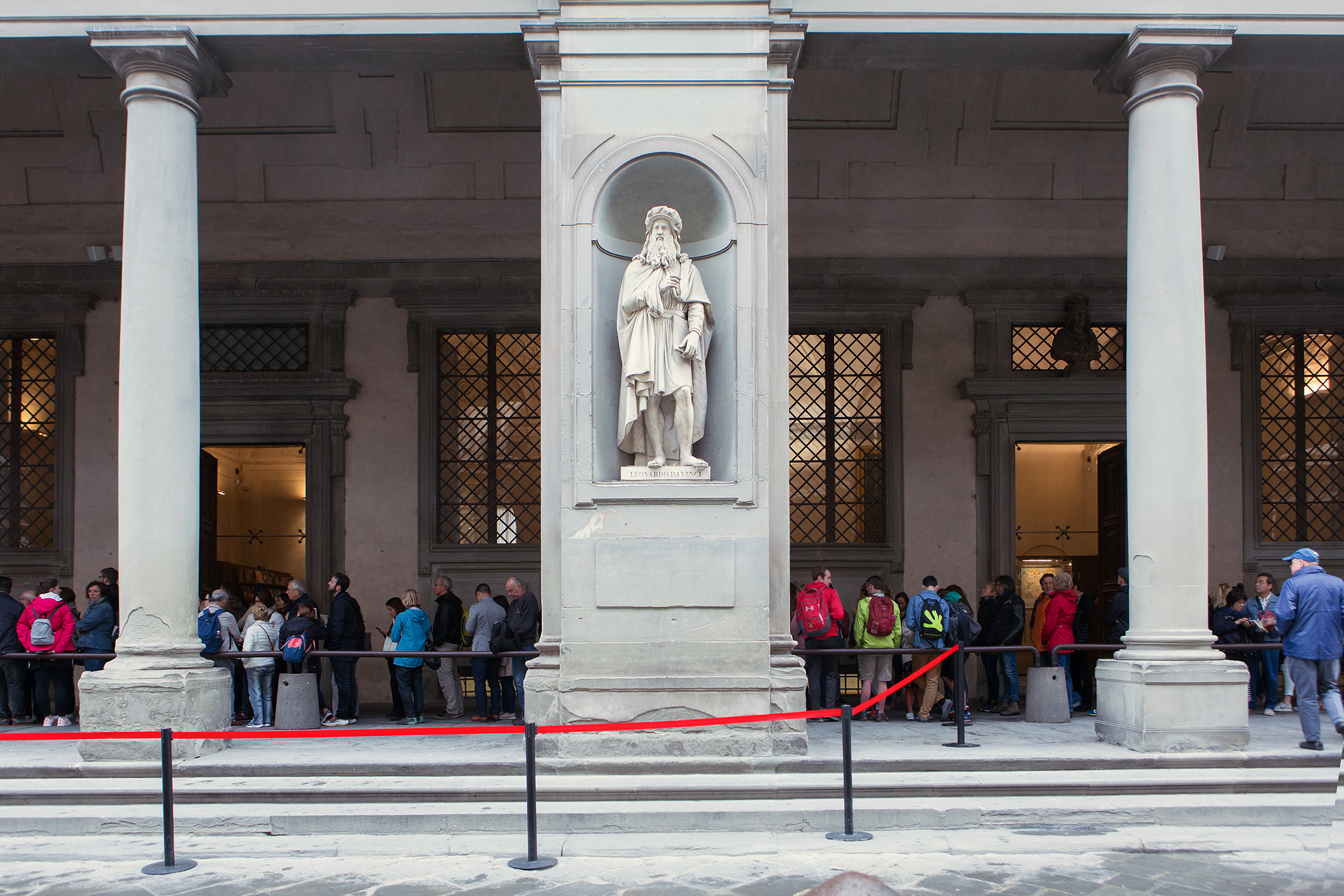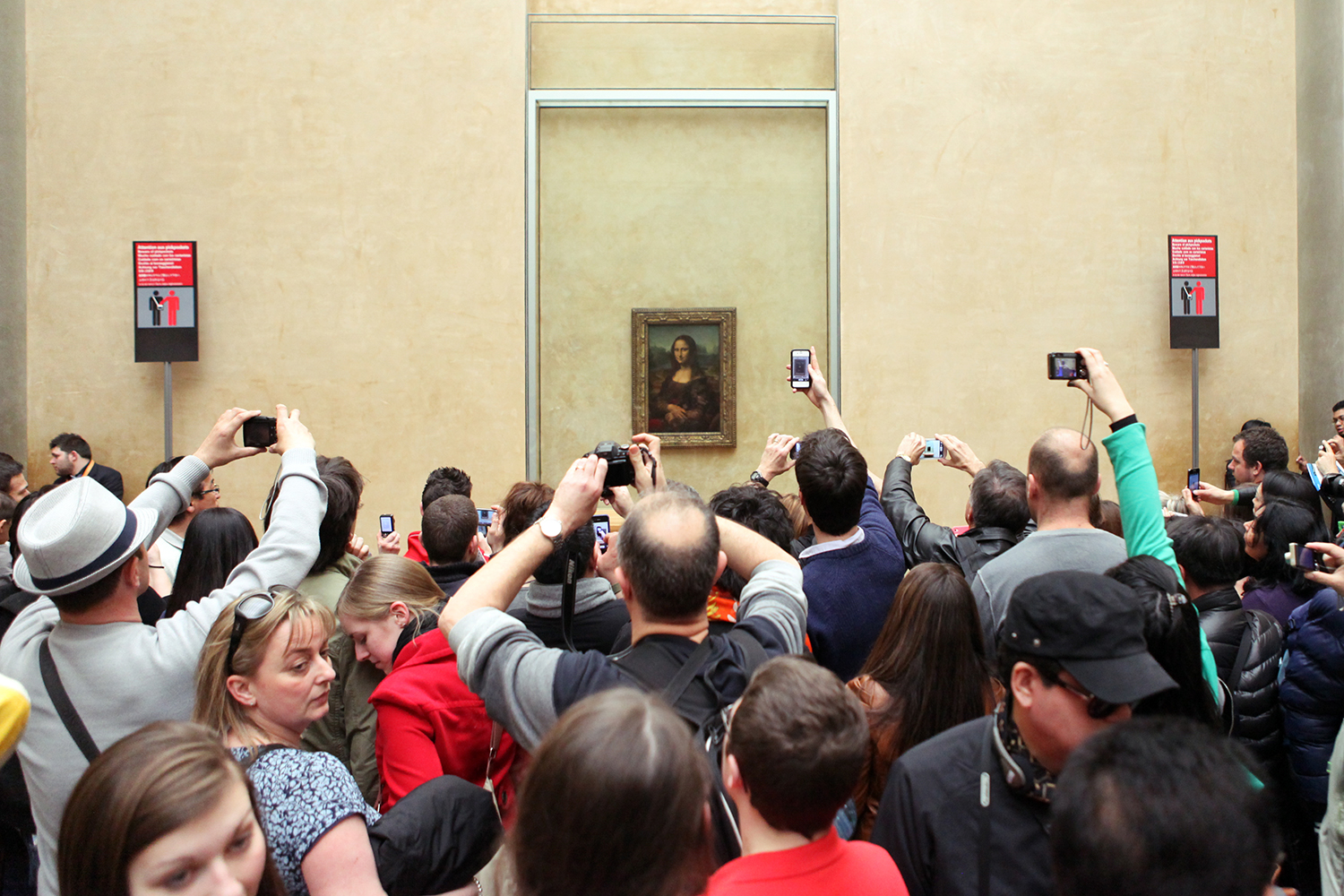Anteprima del mio lavoro fotografico su Leonardo da Vinci
Il 2 Maggio 2019 saranno trascorsi 500 anni dalla morte di Leonardo da Vinci, considerato come uno dei maggiori archetipi dell'uomo universale caratteristico del Rinascimento. Leonardo di ser Piero da Vinci nacque ad Anchiano (frazione di Vinci, Italia) il 15 aprile 1452 e morì ad Amboise (Francia) il 2 maggio 1519. Si interessò alle maggiori forme di espressione nei più disparati campi dell'arte e della conoscenza. Si occupò di architettura e scultura, fu disegnatore, trattatista, scenografo, anatomista, musicista, progettista e inventore. È considerato uno dei più grandi geni dell'umanità.
Nel corso del 2018 ho approfondito i miei studi sull’artista effettuando una ricerca fotografica: ripercorrendone la vita, raccogliendo le “tracce” che ha lasciato, le ipotesi che lo riguardano e le testimonianze sulla sua influenza nelle arti, nella tecnologia e nella quotidianità odierna. Partendo dalla mia terra, la Romagna, dove Leonardo soggiornò e lavorò per Cesare Borgia, aggiornando le fortificazioni delle Rocche del luogo, mi sono poi recato a Vinci e a Firenze dove l'artista visse e passò la giovinezza. A Firenze ho rintracciato alcuni eredi ufficiali di Leonardo, fra cui il Maestro Franco Zeffirelli, uno dei registi italiani più importanti al mondo — purtroppo malato e non disponibile — riuscendo però a ritrarre e intervistare il figlio, Pippo Zeffirelli. Ho esplorato e fotografato la Valmarecchia, il Valdarno e il Lago di Iseo dove alcuni studi collocano gli sfondi dipindi da Leonardo in alcune sue opere (la Gioconda e la Vergine delle Rocce), risalendo ai luoghi esatti che gli studi hanno individuato. A Forlì ho fotografato il Robot “Da Vinci”, il più evoluto sistema robotico per la chirurgia mininvasiva, durante un intervento chirurgico in sala operatoria per la rimozione di un tumore. Infine, a Milano, ho documentato l’ala del Museo della Tecnologia dedicata al genio vinciano.
INTERVISTA A PIPPO ZEFFIRELLI
Franco Zeffirelli, all'anagrafe Gian Franco Corsi Zeffirelli (Firenze, 12 febbraio 1923), è uno dei registi italiani più famosi al mondo che, da diversi anni, si è ritirato dalla scene. A causa della malattia, non è stato possibile intervistarlo ma, al suo posto, si è reso disponibile Pippo Zeffirelli, figlio adottivo del Maestro e vice Presidente della Fondazione Zeffirelli, che gestisce il Museo omonimo. Una ricerca ufficializzata nel 2016, condotta da Alessandro Vezzosi e Agnese Sabato, del Museo Ideale Leonardo da Vinci, ha individuato 35 eredi di Leonardo da Vinci, fra i quali Franco Zeffirelli, il quale però era già a conoscenza di tale discendenza.
Un'analogia curiosa che lega Leonardo da Vinci e il Maestro Zeffirelli e che entrambi sono figli non riconosciuti dai propri padri.
Zeffirelli nasce da un rapporto extraconiugale del padre e della madre: erano entrambi sposati con altre persone. La madre e il rispettivo marito avevano già avuto due figli ma, a seguito di un incidente, l'uomo non poteva più avere figli e questo era noto a Firenze. Per questo motivo lui non aveva potuto riconoscerlo. La madre era una sarta importante all'epoca e il Maestro nacque in Piazza della Repubblica, in un bel palazzotto dove c'era un atelier, un pianoforte (la madre amava la musica classica) e tanto altro. Il padre lo ha sempre frequentato di nascosto e, nel momento in cui rimase vedovo, lo riconobbe. Zeffirelli è un cognome inventato: visto che non poteva avere il cognome del padre né quello del marito della madre. Le iscrizioni allo Spedale degli Innocenti (Il termine "spedale" deriva dall'antico dialetto fiorentino; il nome sarebbe da intendersi come "ospedale dei bambini abbandonati" in riferimento all'episodio biblico della Strage degli Innocenti) usavano le lettere dell'alfabeto per assegnare i nomi agli orfani e, il giorno in cui venne iscritto Leonardo, toccava alla lettera Z. Siccome la madre era un amante dell'opera, volle dargli il nome Zeffiretti, da un'aria dell'Idomeneo di Mozart; ci fù però un errore di trascrizione che lo fece diventare Zeffirelli. A 17 anni il padre rimane vedovo e, dopo averlo riconosciuto, gli diede il proprio cognome: Corsi. Non aveva potuto riconoscerlo prima perché aveva una moglie molto gelosa e con la quale aveva avuto solo una figlia femmina. La moglie era molto risentita del fatto che lui avesse avuto un maschio con un'altra donna. In realtà il padre aveva anche altri figli extra coniugali: lui importava tessuti e forniva molte sartorie di Firenze ed evidentemente doveva possedere un certo fascino e doveva aver incontrato e soddisfatto molte donne perché il Maestro si ritrovò con altri 5/6 fratelli e sorelle: di qualcuno ne venne a conoscenza in età avanzata. Un fratello, ad esempio, lo ha scoperto durante la seconda guerra mondiale: il Maestro era in quel periodo un partigiano e si era rifugiato sulle colline. Conosceva già bene l'inglese e aveva iniziato a fare da interprete per gli inglesi. Un giorno decise di scendere a Firenze per andare a trovare il padre ma, lungo il percorso, lui e una decina di partigiani vennero arrestati da un gruppo di fascisti. Portati in Caserma, incontrò questo tizio dietro la scrivania che schedava i ragazzi arrestati, chiedendo il nome e cognome, e quando arrivò il turno del Maestro, all'epoca già riconosciuto dal padre, fornì il nome intero: Gian Franco Zeffirelli Corsi, figlio di Ottorino Corsi. Lo schedatore, sorpreso, gli domandò "Tu sei figlio di Ottorino?", "Si", a quel punto il tizio chiamò una guardia e fece chiudere Zeffirelli una stanza li accanto. Dopo circa mezz'ora arrivò il padre nella sala dove avveniva la schedatura e, a questo punto, anche il Maestro viene ricondotto li. Con sorpresa generale il padre iniziò a dare delle pacche affettuose al fascista che schedava le persone, dicendogli di perdonare questo ragazzo, che è si un cretino un po' sballato, ma in fondo è tranquillo e buono e quindi di lasciarlo andare. Il Maestro venne rilasciato e, allontanandosi col padre, gli domandò chi fosse quel fascista e lui rispose "Era tuo fratello".
Il fatto che non sia stato ufficialmente riconosciuto fin da subito dal padre ha influenzato il carattere del Maestro o le opere che ha prodotto?
Il Maestro ha avuto una infanzia molto triste e dura. Nei primi due anni fu cresciuto da una balia, poi dalla madre (Alaide Garosi Cipriani), che nel frattempo aveva perso il marito; insieme dovettero trasferirsi a Milano dove la donna si sistemò presso la figlia. Vissero li circa 4 anni, fino a quando la madre morì di tubercolosi, lasciando il Maestro solo. Il padre, attraverso la cugina Lide, lo fece andare a prendere. Si creò un forte legame con la Zia Lide che si occupò di crescere Zeffirelli, educarlo e farlo studiare, grazie anche all'appoggio economico del padre che, quando rimase vedovo, fu convinto da Lide a riavvicinarsi al figlio fino a ricreare un rapporto. Da ragazzino, a 6-7 anni, la moglie del padre era talmente furibonda (a causa del figlio avuto dal marito fuori dal matrimonio) che andava a insultarlo fuori da scuola, chiamandolo "bastardino" e invitandolo ad andarsene da Firenze e proprio su questi episodi si è poi basato il film del 1999 "Un tè con Mussolini". Quindi credo che abbia sofferto molto. Se ha influenzato la sua carriera? Difficile dirlo. Credo fosse un ragazzino molto intelligente, con tanta voglia di fare e una forte personalità. Va comunque detto che durante la sua vita non si è mai sposato ma, ad un certo punto, ha adottato me e Luciano, per crearsi una famiglia.
Anche la genialità è un elemento comune fra il Maestro e Leonardo da Vinci.
Il Maestro, pur non essendo Leonardo, è stato un artista a tutto campo: dalla regia, alla scenografia, al costume, alla scrittura di libri, insomma c'è una genialità anche in lui, difficilmente per via della discendenza da Leonardo, più probabile una predisposizione del ragazzo e forse anche grazie agli insegnanti di alto livello che trovò a scuola. Ricordo che, nell'anno in cui si diplomò all'Istituto d'Arte, studiava sempre assieme a tre amici e tutti sono diventati grandi professionisti: Piero Tosi, il più grande costumista al mondo, che ha lavorato con Visconti, De Sica, Fellini, Pasolini e che ha ricevuto anche un Oscar alla carriera, Danilo Donati, che è stato un altro genio e che ha vinto due oscar: uno per i costumi di Romeo e Giulietta di Zeffirelli e uno per Il Casanova di Fellini, e Anna Anni, che forse ebbe una carriera leggermente inferiore, ma questo perché amava insegnare e vi dedicava molto tempo; lavorò molto con Zeffirelli.
Il Maestro Zeffirelli come aveva scoperto di discendere da Leonardo da Vinci?
La discendenza da Leonardo lui l'ha sempre saputa. Non l'ha mai appurata, sono stati altri a farlo in seguito (vedi la ricerca ufficializzata nel 2016). Il padre, verbalmente, glielo aveva ribadito più volte. Ad esempio alla prima dello spettacolo teatrale di "Romeo e Giulietta", a Londra, il Maestro Zeffirelli era molto emozionato all'idea che sarebbe stata presente anche la Regina d'Inghilterra e il padre allora gli disse "Vai a testa alta perché lei sarà la Regina d'Inghilterra, ma tu discendi da Leonardo da Vinci!".
Avere la responsabilità di preservare, promuovere e tramandare il lavoro del Maestro Zeffirelli immagino che sia molto impegnativo. Ha dovuto rinunciare a qualcosa per questo?
Per cinquanta anni ho lavorato nel campo del cinema, soprattutto col Maestro, ma ho fatto film anche con Francis Ford Coppola, ("Cotton Club"), James Ivory ("Camera con vista") e altri. In seguito fui adottato da Zeffirelli e, più tardi, quando si ammalò, decisi di lasciare gli Stati Uniti, dove vivevo, per trasferirmi definitivamente in Italia per accudirlo, aiutarlo e portare avanti gli impegni familiari e professionali. Quando abbiamo creato la Fondazione Zeffirelli, è toccato a me occuparmene e seguirne la gestione. Non mi manca nulla, forse l'unica cosa è che inizio ad essere abbastanza anziano, ho 70 anni, e invece questo impegno mi occuperà fino alla fine dei miei giorni (sorride). L'adozione è avvenuta che ero già grande, circa 25 anni fa, il Maestro me lo aveva proposto già in precedenza ma ho voluto attendere la scomparsa di mio padre; prima non lo avrei permesso.
Lei e il Maestro avete delle opere preferite di Leonardo da Vinci?
Come si fa a non amare il lavoro di Leonardo? Tutto quello che ha fatto ha dietro uno studio profondo e straordinario. Zeffirelli, fra l'altro, voleva lavorare a due progetti molto ambiziosi che però rimarranno incompiuti. Il primo era un film sull'Inferno di Dante, i cui bozzetti sono presenti qui nel museo nella Sala dell'Inferno. Il secondo era un film, intitolato "I Fiorentini", sulla Repubblica fiorentina nel quale Michelangelo e Leonardo venivano convocati contemporaneamente:il primo per realizzare il David e il secondo per deviare strategicamente il corso dell'Arno durante il conflitto con Pisa. Il film avrebbe approfondito il rapporto fra questi due giganti che si amavano e si odiavano, a causa dell'invidia reciproca. C'è una descrizione meravigliosa della vita a Firenze all'epoca, dell'omosessualità di Michelangelo (di quella di Leonardo se ne parla meno) e tanto altro. In quel periodo di preparazione del film abbiamo approfondito e studiato la vita di Leonardo e le sue invenzioni, imparandone la grandezza. Sarebbe stato un film meraviglioso, con una cura maniacale di ogni dettaglio, come soltanto il Maestro avrebbe saputo fare.
